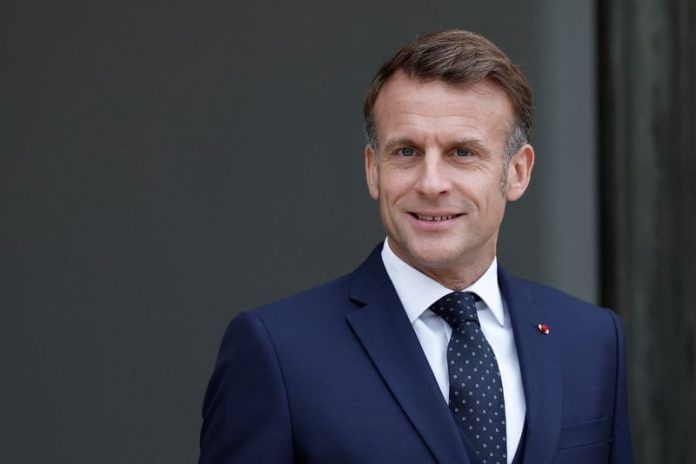By Makini Brice and Leigh Thomas
PARIS (Reuters) -French President Emmanuel Macron was on Thursday searching for his sixth prime minister in under two years, hoping his next pick can steer a budget through a legislature riven by crisis.
Macron’s office said late on Wednesday he would appoint a new prime minister within 48 hours, after outgoing Prime Minister Sebastien Lecornu held two days of talks to seek a way out of France’s worst political crisis in decades.
The political paralysis has made it deeply challenging to pass a belt-tightening budget, demanded by investors increasingly worried by France’s yawning deficit.
“The question that is posed today is whether there are enough people who are responsible,” government spokesperson Aurore Berge told RTL radio. “I think this is the last chance.”
Lecornu said he had told Macron the next prime minister must not be associated with the president’s political movement and hold no ambitions for presidential elections scheduled for 2027.
Several names were being floated in political circles, including former socialist prime minister Bernard Cazeneuve, head of the public auditor Pierre Moscovici, and veteran centrist Jean-Louis Borloo.
LECORNU SAYS A BUDGET DEAL IS POSSIBLE
Lecornu tendered his and his government’s resignation on Monday, hours after announcing the cabinet line-up, making it the shortest-lived administration in modern France.
Following further consultations with mainstream party leaders at Macron’s behest, Lecornu said a majority of lawmakers opposed holding a snap parliamentary election and that there was a path, even if a tough one, to passing a budget by year-end.
Another stumbling block is Macron’s 2023 pension overhaul, which gradually raises the retirement age from 62 to 64. Members of the left have called for the law to be repealed or suspended.
WHAT’S NEXT?
Republicans chief Bruno Retailleau, the outgoing interior minister, said he talked with Borloo on Thursday morning. He praised the 74-year-old for being “disruptive” and not left-wing. Nor is Borloo perceived as being close to Macron.
Retailleau added that it was important that Macron’s party, which suffered heavy losses at last year’s election, not be over-represented in a future government.
“In this political crisis, we must not exacerbate the democratic malaise,” Retailleau told a Politico summit.
Meanwhile, Jordan Bardella, president of Marine Le Pen’s far-right National Rally, reiterated his party’s demand for a new parliamentary election. Manuel Bompard, of the hard-left France Unbowed, repeated his calls for Macron to resign.
On the streets of Paris, people said they hoped for more stability.
“Well, having a prime minister who stays in office would be a good start, I think,” said Mathilde Marcel, 40. “And then, obviously, things need to move forward and reforms need to be implemented.”
The crisis has caused jitters on financial markets but bonds held onto gains from the day before on optimism that France can avoid a snap parliamentary election and agree on a budget.
(Reporting by Makini Brice, Inti Landauro, Elissa Darwish and Marco Trujillo; Editing by Gabriel Stargardter, Ingrid Melander, Timothy Heritage, Ros Russell)
Disclaimer: This report is auto generated from the Reuters news service. ThePrint holds no responsibility for its content.






